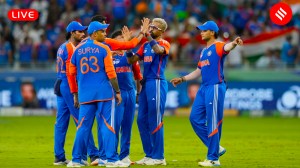Solicitor General tells SC let the CVC protect our Dubeys
The Supreme Court today gave four days to the Centre to respond to Solicitor General Kirit Raval’s proposal that the Central Vigilance ...

The Supreme Court today gave four days to the Centre to respond to Solicitor General Kirit Raval’s proposal that the Central Vigilance Commission (CVC) be empowered to protect whistleblowers.
If the Centre, as expected, agrees with Raval’s suggestion, then anybody will be able to blow the whistle on corruption and give information to the CVC with a built-in assurance of his identity being kept confidential.
This is an interim arrangement meant to be adopted immediately through an executive order pending the enactment of the Whistleblower Act, which is found in advanced democracies such as the US, UK and Australia.
Raval made his submission at the instance of the court on the two PILs that were filed following the expose by The Indian Express of the murder of IIT graduate Satyendra Dubey for complaining to the Prime Minister about corruption in the Golden Quadrilateral national highway project.
A bench, comprising Justice Ruma Pal and Justice P V Reddy, recorded its appreciation of Raval’s idea that the job of following up on the whistleblower’s complaint and protecting him be entrusted to the CVC.
Significantly, the bench also gave three radical suggestions finetuning Raval’s proposal.
• If the whistleblower’s name is leaked out, the CVC should have the power to act against whoever is responsible for leakage.
• The CVC should also be empowered to stop authorities from harassing a whistleblower whose identity had been found out.
• The Centre should give huge publicity to the scheme of encouraging and protecting whistleblowers.
|
SC says: give him the
power to act |
|||||
|
• CVC will receive complaints • No anonymous complaint to be entertained • CVC will protect identity, make discreet enquiries • If there is a case, CVC will contact head of dept • Ask CBI or cops to take action Court adds: Story continues below this ad |
|||||
According to Raval’s proposals, the CVC will be the designated agency to receive complaints from government servants or members of public ‘‘on any allegations of corruption or mis-use of office by any employee of the government or public sector organisations.’’
But the CVC will not entertain any anonymous complaint. The whistleblower will have to reveal his identity to the CVC which may in turn keep his identity confidential.
Raval suggested that ‘‘after concealing the identity of the complainant, the CVC shall make, in the first instance, discreet inquiries to ascertain if there is any basis of proceeding further with the complaint. For this purpose, the CVC shall devise an appropriate mechanism.’’
If the CVC feels the need for further investigations, then it will call for comments or explanations from the concerned head of the department or organisation without disclosing the name of the complainant, he said.
‘‘The CVC shall call upon the concerned head of the organisation to keep the identity of the informant secret, if for any reason, the concerned head comes to know of the identity,’’ the solicitor general suggested.
If the CVC finds evidence of corruption as complained, it will direct initiation of appropriate proceedings against concerned officials. It shall be authorised to call upon the CBI or the police authorities to render all assistance to complete the investigation. Raval said that as this was an interm measure, the government should review the functioning of the mechanism after six monts and take appropriate corrective steps.
Photos



- 01
- 02
- 03
- 04
- 05




























